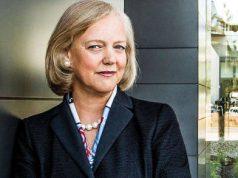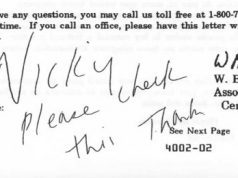
(9/29) — UPDATED 00:35 PDT — Democrat Jerry Brown and Republican Meg Whitman displayed contrasts in both style and substance in a one-hour debate held at UC Davis tonight, the first of three scheduled in the California governor’s race.
Predictably, the primary focus of the debate was the economy and the state’s budget crisis. Both candidates claimed their experience qualified them to fix California’s problems, with Whitman touting her business credentials and Brown his extensive experience in state government.
But an instant reaction poll taken after the debate suggested that few voters watched the debate and even fewer changed their minds.
- TALK BACK: The Brown & Whitman face-off: Who won?
- DEBATE ANALYSIS: Brown rambles, Whitman rooted to talking points
To lower the state’s unemployment rate — hovering above 12% — Whitman presented “business-friendly” proposals that she said would turn around the economy and create jobs. “We have to get Californians back to work,” she said, in a theme she returned to again and again during the debate.
Whitman said she would eliminate a tax on manufacturing equipment that she called a “factory tax,” “streamline regulation,” and create an “economic development team” to compete with other states to bring jobs to California, while removing people from the welfare rolls.
Brown, on the other hand, said his experience cutting budgets during his two terms as governor in the 1970s would serve him well in balancing the budget today. “They’re still fooling around with a lot of fat up there,” he said. Brown said he would invest in green jobs, such as retrofitting buildings to be more energy-efficient.
Brown attacked Whitman’s proposals as coming out of the “George Bush playbook,” the results of which, he said, were “not pretty.” He criticized Whitman’s proposal to cut capital gains tax as a $5 billion giveaway to the wealthy that would increase the state’s deficit.
Brown compared Whitman’s claims of business experience to those of current Governor Arnold Schwarzenegger, who he said also came in promising to be “beholden to no one” and to “run the state like a business.” “It does take know-how,” he said, saying Schwarzenegger had been “flummoxed” by the “sharks” in Sacramento.
But Whitman questioned whether Brown, who has spent a lifetime in Sacramento and whose campaign has received strong financial backing from the state’s public employees unions, could really take on the unions to reform pensions and fix the state’s problems. The next governor needs to have a “spine of steel” and “cannot be beholden to the public sector employees,” she said.
Candidates spar on budget, pension reform
Both candidates agreed on the need to close the state’s yawning budget deficit — estimated at $19 billion this fiscal year — and even on some of the prescriptions, but clashed on who would be better able to accomplish the task.
“We have got to run the government more efficiently,” Whitman said. She said the state could save money by improving its use of technology and bringing in “innovative” ideas from Silicon Valley. She also promised to cut the number of state workers to the level of five years ago.
Brown, meanwhile, said he would “cut 15 to 20 percent out of the governor’s office” and challenge state legislators to do the same. “I’ve done eight budgets” as governor, he said, but “nothing like this mess.”
Both candidates agreed that the state’s public employee pension system, which is facing a funding crisis as retirees’ lifespans increase, needs fixing, probably via some combination of increasing the minimum retirement age, increasing employee contributions, and bringing in new hires under some less-expensive retirement plan.
Whitman said that she would aim to reach a negotiated settlement with unions, but said she was willing to take the question to the voters via a ballot initiative if necessary.
Brown, meanwhile, had the line of the night in response to a question concerning his state pension, which would amount to $78,000 a year if he retired today. “If everybody in state service worked as long as I have,” the state’s pension plans would be “overfunded by 50%”, the 72-year-old Brown said. “I’m the best pension buy California has ever seen,” drawing big laughs from the crowd. Brown said he had suggested creating a separate, less generous benefits tier for new hires during his first tour as governor, but that later administrations had ignored his plan.
Whitman, Brown criticizes campaign ads, donors
Whitman defended her ad campaign, including an ad, criticized by independent fact-checking organizations, which uses footage of Bill Clinton blasting Jerry Brown for raising taxes during his term as governor in a 1992 Democratic presidential primary debate.
“I stand by” the ad, Whitman said, saying that taxes had been higher in six of the years Brown was governor. “Jerry Brown doesn’t like the ad because it calls out his record.”
When asked about her campaign’s vast spending — more than $119 million so far, a record for a state race — Whitman said that she didn’t believe that voters could be “bought.” She said her huge investment in her own campaign would give her the “independence” necessary to push changes through in Sacramento, and pointed to state public employee unions, who she said have spent $300 million on political campaigns in the last five years.
“I’m up against some very significant forces,” she said.
Whitman said Brown’s dependence on campaign money from public employees unions would affect his ability to renegotiate labor contracts and pensions, steps she said were necessary to fix the state budget deficit.
But Brown said his record showed that he could stand up to public sector employees unions, saying that he vetoed pay hikes for state employees twice when he was governor.
Candidates differ on immigration, death penalty
In light of the events surrounding the pending execution of condemned inmate Albert Brown, Brown was asked about his views on the death penalty and the appeals process for capital cases. Brown said his personal opposition to the death penalty would not stop him from “faithfully” carrying out the law, and that the lengthy process of death penalty appeals could be sped up if money were spent to “appoint the personnel” more quickly to prepare the appeals required by law.
Whitman, however, criticized Brown’s death penalty stance and said he has a “40-year record of being quite liberal on crime.” She said she supports the death penalty and “three strikes” punishments, and said she would appoint “very conservative judges” who “will not legislate from the bench.”
Whitman said she “wouldn’t support a path to legalization” for illegal immigrants and said “we have to secure the borders” of the USA, but said she opposed Proposition 187, the 1994 measure which would have denied all public services — including public education — to illegal immigrants, and Arizona’s recent immigration law. Brown, meanwhile, said that he supported legalization as part of “comprehensive” federal immigration reform, but said that as attorney general, he has been working to make sure illegal immigrants who are arrested for committing other crimes get deported.
Surprisingly, K-12 education, the largest single portion of the state budget and traditionally an area of concern for voters, received little notice during the debate. When asked about university student fees, neither Brown nor Whitman was willing to give a commitment to freeze or roll back tuition, with Brown acknowledging that the state’s budget deficit would make it difficult to restore university funding, and Whitman saying that she would let university leaders decide what to do with her proposed $1 billion university funding increase, to be paid for by welfare cuts.
Brown, Whitman show contrasting styles
The two candidates brought sharply contrasting debating styles to the clash. Whitman, a first-time political candidate who appeared to be visibly nervous at the start of the debate, mostly stuck to tried-and-tested talking points and tried to smile whenever possible. Brown, the political veteran, appeared to be relaxed as he gave rambling, off-the-cuff answers — at one point having to ask for more time, realizing that he hadn’t answered the question — and even managed to draw some laughs from the crowd.
The stylistic difference does not appear to have mattered, however. A SurveyUSA instant reaction poll of 1,525 adults conducted for KPIX television found that, of those who watched the debate, 40% said Brown won, whereas 37% said Whitman won — a statistical tie. 67% said the debate had not changed whom they intend to vote for.
Only 33% of those surveyed watched or listened to the debate, suggesting that most voters would be exposed to the debate only through news stories and video clips.
Brown and Whitman will debate again on October 2 in Fresno, and October 12 at Dominican University in Marin County.









